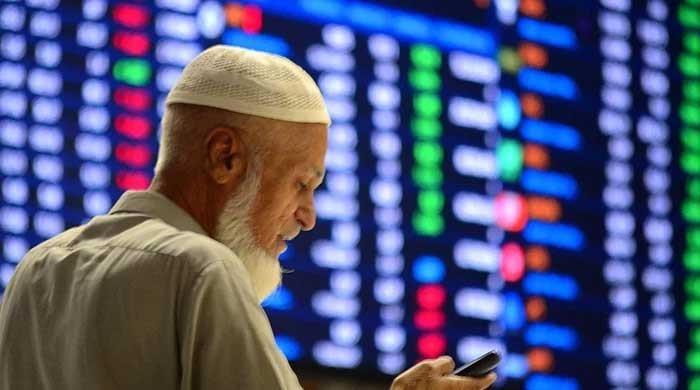The stock market staged a robust rebound on Friday, breaking a two-session losing streak and signalling a strong recovery in investor sentiment.
Renewed buying momentum surged as investors seized value opportunities after enduring a period of intensified selling pressure.
The Pakistan Stock Exchange’s (PSX) benchmark KSE-100 Index rose by 1,620.45 points, or 1.47%, during early trading, reaching an intraday high of 112,043.77.
“Market is rebounding after declining for two sessions. Seems profit-taking/correction is done for the time being,” said Samiullah Tariq, Head of Research at Pak-Kuwait Investment Company.
The rally came amid notable economic updates and policy announcements. Federal Board of Revenue (FBR) Chairman Rashid Mahmood Langrial revealed a staggering Rs7.1 trillion tax gap, with Rs2.4 trillion attributed to income tax shortfalls.
Concurrently, Finance Minister Muhammad Aurangzeb reiterated the government’s commitment to increasing the tax-to-GDP ratio from 9-10% to 13.5% . The Tax Laws (Amendment) Bill, 2024 aims to impose stricter restrictions on non-filers, barring them from acquiring high-value assets like vehicles over 800cc and expensive properties or conducting large financial transactions.
Despite these policy developments, external economic pressures persist.
The State Bank of Pakistan (SBP) reported a $228 million decline in foreign exchange reserves, reducing the total to $11.85 billion as of December 20, with combined reserves, including commercial banks, dropping by $261 million to $16.372 billion.
However, this marks a substantial improvement from the dangerously low levels of $2.9 billion in February 2023, supported by a $200 billion rate cut by the SBP that strengthened macroeconomic fundamentals.
Trade and investment data also provided encouraging signs of economic resilience. Exports rose by 12.57% to $13.691 billion during the first five months of FY2024-25, compared to $12.162 billion in the same period last year. Exports to the EU and the broader Asian region totaled $4.8 billion each, while shipments to the US, Pakistan’s largest trading partner, increased by 14% to $2.4 billion.
Conversely, exports to China declined by 14%. Significant growth was recorded in exports to the UAE and Afghanistan, which surged by 35% and 42%, respectively. Foreign direct investment (FDI) also increased by 31% year-on-year to $1.124 billion during the same period, with $219 million recorded in November.
Other macroeconomic indicators reflect positive momentum. Pakistan recorded a current account surplus of $729 million in November, the largest in a decade, reversing the $148 million deficit recorded in November 2023. Over the first five months of FY2024-25, the current account surplus reached $944 million, a sharp turnaround from the $1.67 billion deficit recorded during the same period last year.
Additionally, the country’s credit default swap (CDS) spreads have tightened by 88%, indicating reduced credit risk and improved investor confidence.

